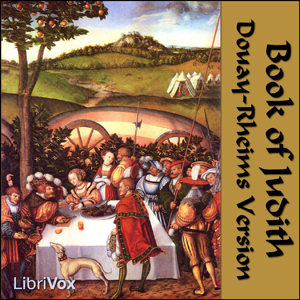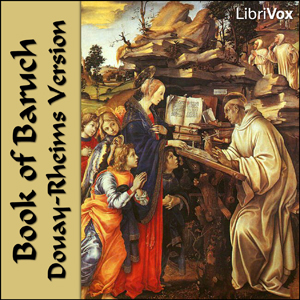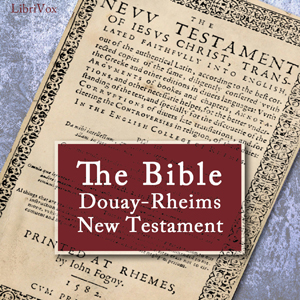Judith is the 18th book of the Bible and one of the historical books in the Old Testament. The overall theme is the power of prayer. The Israelites are beseiged by the forces of Holofernes and pray to God to overcome the forces. Judith seduces Holofernes and beheads him in his sleep, when the forces find their leader dead, they flee in battle. The Israelites benefit from their spoils and Judith sings praises to God. (Summary by Sean McKinley)
2 episodes
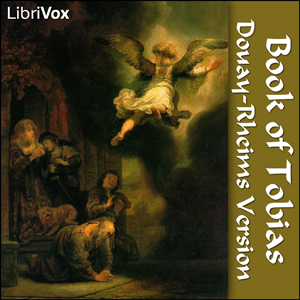
Tobias is the 17th book of the Bible and one of the historical books in the Old Testament. In the text, Raphael, after revealing his angelic nature, commanded both father and son to tell all the wonders that God had done to them and write it in a book. It is likely that the parts of the book written in first person singular are an autobiography of Tobias the elder. It was written originally during the Babylonian Exile, in the early portion of the seventh century B.C.; and that all except the last chapter was the work of Tobias the elder and his son.The story naturally divides itself into two parts: the fidelity of Tobias the elder and of Sara to the Lord; and the fidelity of the Lord to Tobias and to Sara through the ministrations of the angel Raphael. The chief purpose of the book is to show that God is faithful to those that are faithful to Him. Tobias the elder carries out God's will through prayer, almsgiving, and his works of mercy in burying the dead. Tobias (the son) and Sara follow God's word through their chastity and prayers.(Summary by Sean McKinley)
2 episodes
The story revolves around Judith, a daring and beautiful widow, who is upset with her Jewish countrymen for being unwilling to engage their foreign conquerors. She goes with her loyal if reluctant maid Abra to the camp of the enemy general, Holofernes, to whom she slowly ingratiates herself, promising him both sexual favors and information on the Israelites. Gaining his trust (though not having delivered on either promise), she is allowed access to his tent one night as he lies in a drunken stupor. She decapitates him, then takes his head back to her fearful countrymen. The Assyrians, having lost their leader, disperse, and Israel is saved. Though she is courted by many, she remains unmarried for the rest of her life. (Summary by Wikipedia)
3 episodes
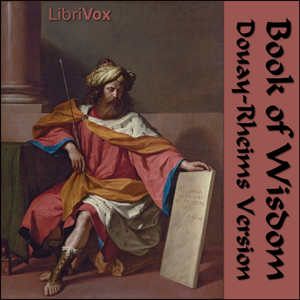
Wisdom is one of the apocryphal/deuterocanonical books of the Bible. It is a wisdom book, bearing similarity to the canonical works. Scholars believe that the book represents the most classical Greek language found in the Septuagint, having been written during the Jewish Hellenistic period (the 1st or 2nd century BC). The author of the text appears well versed in the popular philosophical, religious, and ethical writings adopted by Hellenistic Alexandria. According to St. Melito in the second century AD, it was considered canonical by Jews and Christians,[1] and a Hebrew translation of the Wisdom of Solomon is mentioned by Naḥmanides in the preface to his commentary on the Pentateuch.The philosophical influences on the Book of Wisdom may include those of classical and Middle-Platonism. Some religious and ethical influences may stem from Stoicism, also found in the writings of the Alexandrian Jew, Philo, to whom Book of Wisdom has on occasion been wrongly attributed. (This is evident in the use of the four Stoic ideals which are borrowed from Plato.) A sorites appears in Chapter 6 (v. 17-20). This logical form is also called chain-inference, "of which the Stoics were very fond." (Zeller, Stoics, p. 216 note) (Summary by Wikipedia, modified by Sam Stinson)
2 episodes
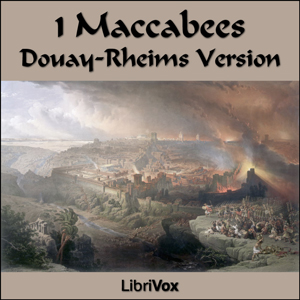
1 Maccabees is an apocryphal/deuterocanonical book written by a Jewish author after the restoration of an independent Jewish kingdom, probably about 100 BC. It is included in the Catholic and Eastern Orthodox canons. Protestants, Jews, and some others regard it as generally reliable historically, but not a part of Scripture. The setting of the book is about a century after the conquest of Judea by the Greeks under Alexander the Great, after Alexander's empire has been divided so that Judea was part of the Greek Seleucid Empire. It tells how the Greek ruler Antiochus IV Epiphanes attempted to suppress the practice of basic Jewish religious law, resulting in a Jewish revolt against Seleucid rule. The book covers the whole of the revolt, from 175 to 134 BC, highlighting how the salvation of the Jewish people in this crisis came from God through Mattathias' family, particularly his sons, Judas Maccabeus, Jonathan Maccabaeus, and Simon Maccabaeus, and his grandson, John Hyrcanus. The doctrine expressed in the book reflects traditional Jewish teaching, without later doctrines found, for example, in 2 Maccabees. (Summary by Wikipedia, modified by Sam Stinson)
3 episodes
The Book of Baruch consists of exhortation to Jews in exile to accept exile, hope for the mercy of God, and resist the temptation to worship idols of the nations. The Book of Baruch, occasionally referred to as 1 Baruch, is called a deuterocanonical or apocryphal book of the Bible. Although not in the Hebrew Bible, it is found in the Greek Bible (LXX) and in the Vulgate Bible, and also in Theodotion's version. There it is found among the prophetical books which also include Isaiah, Jeremiah, Lamentations, Ezekiel, Daniel, and the twelve minor prophets. It is named after Baruch ben Neriah, Jeremiah's scribe. Scholars propose that it was written during or shortly after the period of the Maccabees. In the Vulgate, the King James Bible, and many other versions, the Letter of Jeremiah is appended to the end of the Book of Baruch as a sixth chapter. (Summary by Wikipedia, modified by Sam Stinson)
2 episodes
The Douay Rheims New Testament, published in 1582, is a translation of St Jerome's Latin Vulgate which dates from the fourth century. It influenced production of the King James version of the Bible to come some years afterward, while being the only Roman Catholic authorized vernacular scriptures up until the middle twentieth century. Although updated linguistically in the 18th and 19th centuries to provide easier understanding by the laity and reduce its use of Latinized words, it strove to be faithful to the original translation. The work's importance is that it remains the scriptural texts still relied upon and recognized by more conservative Catholics, following the Second Vatican Council. Its original intent was to respond to the emerging Protestant Reformation of the sixteenth century in England. In a phrase, it seems to strive to be "the salt of the earth". (Summary by JCarson)
24 episodes


